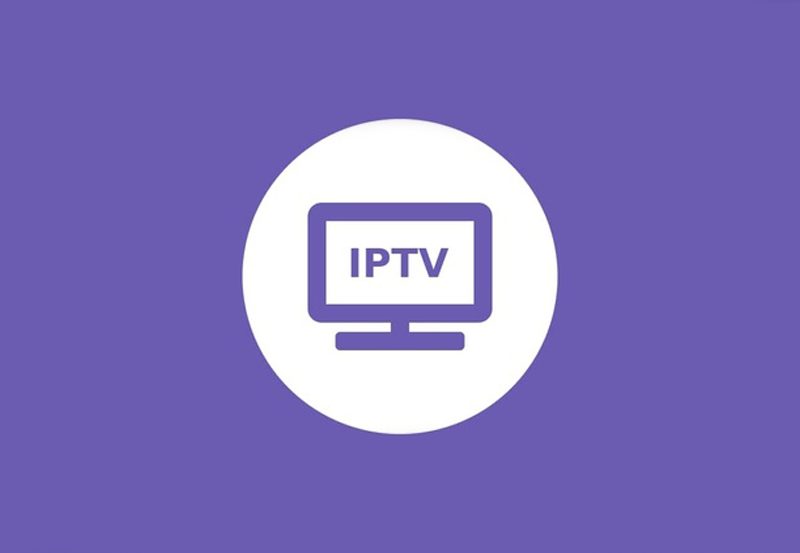In recent years, sustainable development has become a focal point as global environmental challenges and resource management concerns intensify. Concurrently, Internet Protocol Television (IPTV) has emerged as an innovative method for delivering television content via internet protocol networks. IPTV offers high-quality video, interactive features, and on-demand programming through internet-based technology.
As global interconnectivity and digitalization increase, IPTV’s potential to contribute to sustainable development is becoming more evident. IPTV can significantly impact sustainable development by reducing the environmental footprint of traditional television broadcasting. By leveraging internet-based technology, IPTV can decrease energy consumption and carbon emissions associated with conventional broadcasting methods.
Furthermore, IPTV enables more efficient resource utilization by eliminating the need for physical infrastructure such as broadcast towers and satellite dishes. This reduction in infrastructure can lead to decreased land use and habitat disruption, further enhancing environmental sustainability. As demand for high-quality video content continues to grow, IPTV presents a sustainable alternative to traditional television broadcasting methods, positioning it as a valuable tool in promoting sustainable development.
Key Takeaways
- IPTV can play a significant role in promoting sustainable development by providing access to educational and informative content.
- Environmental sustainability can be achieved through IPTV by reducing the need for physical resources such as paper and plastic for traditional television services.
- IPTV in tourism can contribute to sustainable development by promoting eco-friendly travel options and showcasing environmentally conscious destinations.
- Global citizenship can be fostered through IPTV by promoting cultural understanding and awareness of global issues.
- The future of television lies in its potential to promote sustainable development through initiatives that support a greener world, such as energy-efficient broadcasting and eco-friendly production practices.
IPTV and Environmental Sustainability
Reducing Infrastructure and Promoting Sustainability
Additionally, IPTV allows for more efficient use of resources by eliminating the need for physical infrastructure such as broadcast towers and satellite dishes. This reduction in infrastructure can lead to a decrease in land use and habitat disruption, further contributing to environmental sustainability. Furthermore, IPTV offers opportunities for content providers to promote environmental sustainability through the delivery of educational programming and messaging.
Engaging Viewers and Promoting Sustainable Behaviors
By leveraging the interactive features of IPTV, content providers can engage viewers in discussions about environmental issues and promote sustainable behaviors. For example, IPTV platforms can offer on-demand access to documentaries and educational programs about environmental conservation, climate change, and sustainable living. Additionally, IPTV can be used as a platform for environmental advocacy, allowing organizations to reach a wide audience with messaging about conservation efforts and sustainable initiatives.
A Powerful Tool for Environmental Awareness
By leveraging the capabilities of IPTV, content providers can play a significant role in promoting environmental sustainability and raising awareness about pressing environmental issues.
Sustainable Development and IPTV in Tourism
The tourism industry plays a significant role in economic development and has the potential to contribute to sustainable development through responsible resource management and environmental conservation. IPTV can play a crucial role in promoting sustainable tourism by providing travelers with access to educational content about local ecosystems, conservation efforts, and sustainable travel practices. Through IPTV platforms, travelers can access information about eco-friendly accommodations, responsible wildlife viewing practices, and sustainable tourism initiatives in their destination.
Additionally, IPTV can be used to showcase local cultural and natural attractions, promoting appreciation for the environment and encouraging responsible tourism behaviors. Furthermore, IPTV can enhance the tourism experience by providing travelers with access to interactive maps, virtual tours, and on-demand travel guides. By leveraging the capabilities of IPTV, tourism providers can offer travelers a more immersive and informative experience, allowing them to explore destinations while minimizing their environmental impact.
Additionally, IPTV can be used to promote local businesses and sustainable tourism initiatives, encouraging travelers to support environmentally responsible practices during their visit. By integrating IPTV into the tourism industry, stakeholders can promote sustainable development by providing travelers with access to educational content, promoting responsible tourism behaviors, and enhancing the overall tourism experience.
IPTV and Global Citizenship
As the world becomes increasingly interconnected, the concept of global citizenship is gaining prominence as individuals recognize their role in addressing global challenges such as climate change, poverty, and social inequality. IPTV has the potential to promote global citizenship by providing viewers with access to diverse perspectives, cultural exchange opportunities, and educational programming about global issues. Through IPTV platforms, viewers can access international news coverage, documentaries about global challenges, and educational programs about different cultures and societies.
This exposure to diverse perspectives can foster empathy, understanding, and a sense of global responsibility among viewers. Additionally, IPTV can be used as a platform for promoting cross-cultural dialogue and understanding through interactive features such as live streaming events, virtual discussions, and collaborative projects. By leveraging the capabilities of IPTV, content providers can facilitate meaningful interactions between individuals from different parts of the world, fostering a sense of global community and shared responsibility.
Furthermore, IPTV can be used to promote global citizenship through educational programming that addresses pressing global challenges such as climate change, poverty alleviation, and human rights advocacy. By providing viewers with access to diverse perspectives and educational content about global issues, IPTV has the potential to promote global citizenship and inspire viewers to take action on global challenges.
The Future of Television and Sustainable Development
As technology continues to evolve, the future of television is increasingly intertwined with the concept of sustainable development. IPTV is poised to play a significant role in shaping the future of television by offering a more sustainable alternative to traditional broadcasting methods. With its efficient use of resources, reduced energy consumption, and potential for promoting environmental sustainability, IPTV is well-positioned to contribute to a more sustainable television industry.
Additionally, as consumer demand for high-quality video content continues to grow, IPTV offers an innovative solution that meets this demand while minimizing its environmental impact. Furthermore, the future of television is likely to be characterized by increased interactivity and personalized content delivery, both of which are key features of IPTV. By leveraging interactive features such as on-demand programming, virtual reality experiences, and personalized recommendations, IPTV has the potential to offer viewers a more engaging and immersive television experience.
This increased interactivity can be used to promote sustainable behaviors and raise awareness about pressing environmental issues through educational programming and advocacy initiatives. As the television industry continues to evolve, IPTV is poised to play a significant role in shaping the future of television by offering a more sustainable alternative that meets the evolving needs of viewers.
IPTV and Sustainable Initiatives for a Greener World
Raising Awareness and Inspiring Action
By leveraging the capabilities of IPTV, content providers can engage viewers in discussions about pressing environmental issues and inspire them to take action towards a greener world. Educational programming and advocacy initiatives can be used to highlight conservation efforts, renewable energy projects, and sustainable living practices.
Promoting Corporate Social Responsibility
IPTV can be used as a platform for promoting corporate social responsibility by showcasing businesses that are committed to sustainability and environmental stewardship. Through sponsored content and advertising partnerships, businesses can use IPTV platforms to raise awareness about their sustainability initiatives and promote eco-friendly products and services.
Fundraising for Environmental Conservation
IPTV can also be used as a platform for fundraising efforts in support of environmental conservation projects and sustainable development initiatives. By leveraging the reach and interactivity of IPTV platforms, stakeholders can promote sustainable initiatives for a greener world and engage viewers in efforts towards environmental conservation.
Promoting Sustainable Development through IPTV
In conclusion, IPTV has the potential to play a significant role in promoting sustainable development by reducing the environmental impact of television broadcasting, promoting responsible tourism practices, fostering global citizenship, shaping the future of television towards sustainability, and promoting sustainable initiatives for a greener world. Through its efficient use of resources, reduced energy consumption, interactive features, and potential for delivering educational programming about pressing environmental issues, IPTV offers an innovative solution that meets the evolving needs of viewers while minimizing its environmental impact. As the world continues to grapple with pressing environmental challenges such as climate change and resource depletion, IPTV stands as an important tool in promoting sustainable development across various sectors including television broadcasting, tourism industry, global citizenship promotion, shaping future television trends towards sustainability and promoting sustainable initiatives for a greener world.
By leveraging the capabilities of IPTV platforms, stakeholders have an opportunity to engage viewers in discussions about pressing environmental issues such as conservation efforts, renewable energy projects, responsible tourism practices among others while inspiring them towards taking action towards a greener world. As technology continues to evolve and consumer demand for high-quality video content grows exponentially; it is imperative that we embrace innovative solutions such as IPTV that not only meet these demands but also contribute towards minimizing our environmental impact while promoting sustainable development across various sectors globally.
One related article to IPTV and Sustainable Development: Promoting Green Initiatives can be found on premiumiptvservice This article discusses the environmental benefits of IPTV and how it can contribute to sustainable development by promoting green initiatives. It explores how IPTV technology can help reduce carbon emissions and energy consumption, making it a more environmentally friendly option for accessing television content.




